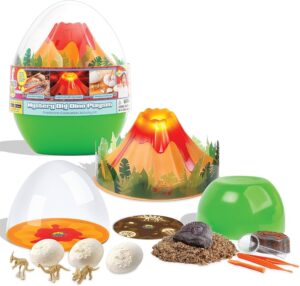Are Dino Nuggets Vegan
Many might not be aware that the playful shape of dino nuggets often overshadows a critical question for those following a plant-based lifestyle: can these childhood favorites be vegan?
Traditionally, dino nuggets are crafted from chicken, yet the growing demand for plant-based alternatives has ushered in an era where vegan dino nuggets are not just a possibility but a reality.
This shift raises intriguing questions about nutritional value, taste comparison, and availability. If one's curiosity is piqued about how these vegan counterparts stack up against their traditional counterparts, there's a wealth of information that might just alter one's perception of this iconic snack.
Key Takeaways
- Traditional Dino Nuggets contain meat, thus are not vegan.
- Vegan versions of nuggets exclude all animal products, including eggs and dairy.
- Vegan alternatives may offer health benefits like less saturated fat and added fiber.
- The market offers plant-based nugget options catering to the growing vegan consumer base.
Understanding Dino Nuggets
Dino Nuggets, a popular pre-shaped chicken nugget product, cater primarily to children, intriguing them with their dinosaur shapes while providing a quick meal option. These nuggets are typically made from processed chicken meat, which undergoes grounding and shaping before being breaded and cooked.
The manufacturing process ensures uniformity in taste and texture, aiming to satisfy the palates of their young target audience. Nutritionally, they offer a source of protein but can also contain added preservatives and sodium, aspects that consumers often scrutinize.
Market as convenient and fun, these nuggets have found a steady place in the frozen food aisles of supermarkets, reflecting a demand for easy-to-prepare, child-friendly foods that align with busy family lifestyles.
The Vegan Diet Explained
The vegan diet, characterized by its exclusion of all animal products, offers a plant-based alternative to traditional dietary choices, focusing on foods derived entirely from plants. This diet not only excludes meat but also dairy, eggs, and any other substances derived from animals. Research shows that a vegan diet can provide all the necessary nutrients, vitamins, and minerals needed for optimal health, provided it's well-planned.
Studies indicate that individuals following a vegan diet may have a lower risk of heart disease, hypertension, type 2 diabetes, and certain types of cancer. The diet's emphasis on fruits, vegetables, legumes, and whole grains promotes a high intake of dietary fiber, antioxidants, and beneficial plant compounds, contributing to overall health and wellness.
Common Ingredients in Dino Nuggets
Dino nuggets often contain a variety of ingredients, with meat being the primary component in traditional recipes. An analysis of these ingredients reveals that they're not compatible with a vegan diet due to the inclusion of animal products.
This section will explore the key ingredients and meat content in detail to determine their suitability for vegans.
Key Ingredients Overview
Common ingredients in dino nuggets typically include ground meat, breadcrumbs, and various seasonings, reflecting a product that isn't vegan.
In addition to these core components, manufacturers often incorporate vegetable oils, such as soybean or canola, to enhance texture and flavor. Wheat flour is commonly used as a binder and to facilitate the crispy outer coating once fried or baked.
Eggs or egg derivatives might also be present, serving as an emulsifier to ensure that the mixture retains its shape and cohesiveness. Water is frequently added to adjust the nuggets' density and moisture content.
Preservatives and additional flavorings, including onion and garlic powders, are integrated to prolong shelf life and enrich taste, further indicating the complexity of their composition.
Meat Content Analysis
Building on the overview of key ingredients, it's crucial to analyze the meat content in dino nuggets, as this component significantly influences their nutritional profile and categorization.
Typically, dino nuggets are made from ground chicken or turkey meat, which is then mixed with various seasonings and binders such as flour or starches. The meat content varies across brands, but it's the primary source of protein in these products. However, the presence of meat immediately disqualifies dino nuggets from being considered vegan.
Furthermore, the processing of the meat, including the addition of preservatives and flavor enhancers, raises questions about the overall healthfulness of these products. It's clear that while dino nuggets may appeal to younger audiences for their shape and taste, their meat content places them firmly outside the vegan category.
Veganism and Processed Foods
Within the context of veganism, the classification and scrutiny of processed foods, such as dino nuggets, raise critical questions about their ingredients and health implications.
Labels indicating a product is 'vegan' are subject to specific guidelines, yet the nutritional value and health impacts of these processed options warrant a closer examination.
This analysis reveals the complexity of vegan choices in the processed food market, highlighting the importance of informed decision-making for consumers.
Vegan Labels Explained
Navigating the landscape of vegan labels on processed foods requires an understanding of the criteria and certifications that define a product as vegan. These labels, such as the Vegan Society's trademark or the Certified Vegan logo, indicate a product's compliance with strict vegan standards, meaning it contains no animal products or by-products and hasn't been tested on animals.
Producers must adhere to rigorous verification processes to obtain these certifications, ensuring the integrity of their vegan claims. For consumers seeking to maintain a vegan diet, recognizing and trusting these labels is crucial. They serve as a guide in selecting products that align with their ethical and dietary preferences, eliminating the guesswork in determining a product's vegan status.
Health Impacts Assessed
Having explored the significance of vegan labels, it's crucial to examine the health implications of consuming processed foods within a vegan diet. While opting for vegan products, like dino nuggets, might align with ethical or environmental values, it's essential to consider their nutritional content.
Processed vegan foods often contain high levels of sodium, sugar, and unhealthy fats, contributing to health issues like heart disease and diabetes. Moreover, they can lack essential nutrients found in whole foods, such as fiber, vitamins, and minerals. Thus, while vegan dino nuggets can be a convenient and cruelty-free option, relying heavily on such processed items may not offer the balanced nutrition necessary for optimal health.
It's advisable to incorporate a variety of whole, plant-based foods to ensure a nutrient-rich diet.
Exploring Vegan Dino Nuggets
Several brands now offer vegan dino nuggets, catering to the growing demand for plant-based alternatives that don't compromise on the nostalgic shape and taste enjoyed by many. These products are meticulously crafted using ingredients such as soy, wheat, peas, and a variety of seasonings to mimic the texture and flavor profile traditionally associated with their meat-based counterparts.
The development of these plant-based options illustrates a significant advancement in food technology, allowing for a broader inclusivity in dietary choices. Manufacturers have focused on ensuring these vegan versions maintain a satisfying crunch and a flavorful experience, closely resembling the original product. This approach not only appeals to vegans and vegetarians but also to individuals looking to reduce their meat consumption for health, environmental, or ethical reasons.
Nutritional Comparison
While exploring vegan dino nuggets, it's crucial to analyze how their nutritional content compares to traditional meat-based versions, focusing on aspects such as protein, fiber, and overall caloric value.
- Protein: Vegan nuggets often contain less protein than their meat counterparts, but the difference is usually minor and can be offset by consuming a varied diet.
- Fiber: Vegan options typically offer more dietary fiber, supporting digestive health.
- Calories: Caloric content varies widely, with some vegan versions being lower in calories, making them a potentially healthier option for those monitoring caloric intake.
- Fat: Vegan nuggets may have less saturated fat, beneficial for heart health.
- Vitamins and Minerals: Plant-based nuggets can be fortified with vitamins and minerals, but it's essential to check labels as nutritional profiles vary.
Where to Buy Vegan Nuggets
Vegan dino nuggets are available at a variety of retailers, including supermarkets, health food stores, and online platforms, catering to an increasing consumer demand for plant-based options.
This availability reflects a significant shift in consumer preferences towards more ethical and sustainable food choices. Leading supermarkets have expanded their freezer sections to include a diverse range of vegan products, recognizing the growing segment of consumers opting for meat alternatives.
Health food stores often offer a curated selection of plant-based nuggets, focusing on organic and non-GMO options. Online platforms provide the widest variety, enabling consumers to compare brands, read reviews, and access products not available in their local area.
This multi-channel retail approach ensures that vegan dino nuggets are accessible to a broad audience, supporting the trend towards plant-based eating.
Final Thoughts
Reflecting on the widespread availability of vegan dino nuggets, it's clear that consumer demand for plant-based options isn't only growing but reshaping the food industry. This trend is evidenced by:
- The surge in vegan product offerings
- Increasing innovation in plant-based recipes
- The expanding presence of vegan items in mainstream grocery stores
- A broader acceptance of veganism in society
- Positive environmental impacts highlighted by research
These factors collectively indicate a significant shift towards more sustainable eating habits.
As companies continue to innovate and cater to the vegan market, it's likely that the variety and quality of plant-based products will keep improving. This evolution suggests a future where choosing vegan options becomes easier, further encouraging a shift in consumer preferences towards plant-based diets.
Conclusion
In conclusion, while traditional dino nuggets don't align with a vegan diet due to their meat content, the market has responded with plant-based alternatives. Critics might argue that vegan dino nuggets can't replicate the taste of their meat counterparts, but advancements in food technology have significantly narrowed this gap.
Today's vegan nuggets offer a nutritious, environmentally friendly option that closely mirrors the flavor and texture of traditional nuggets, proving that sustainable choices don't have to sacrifice taste.




